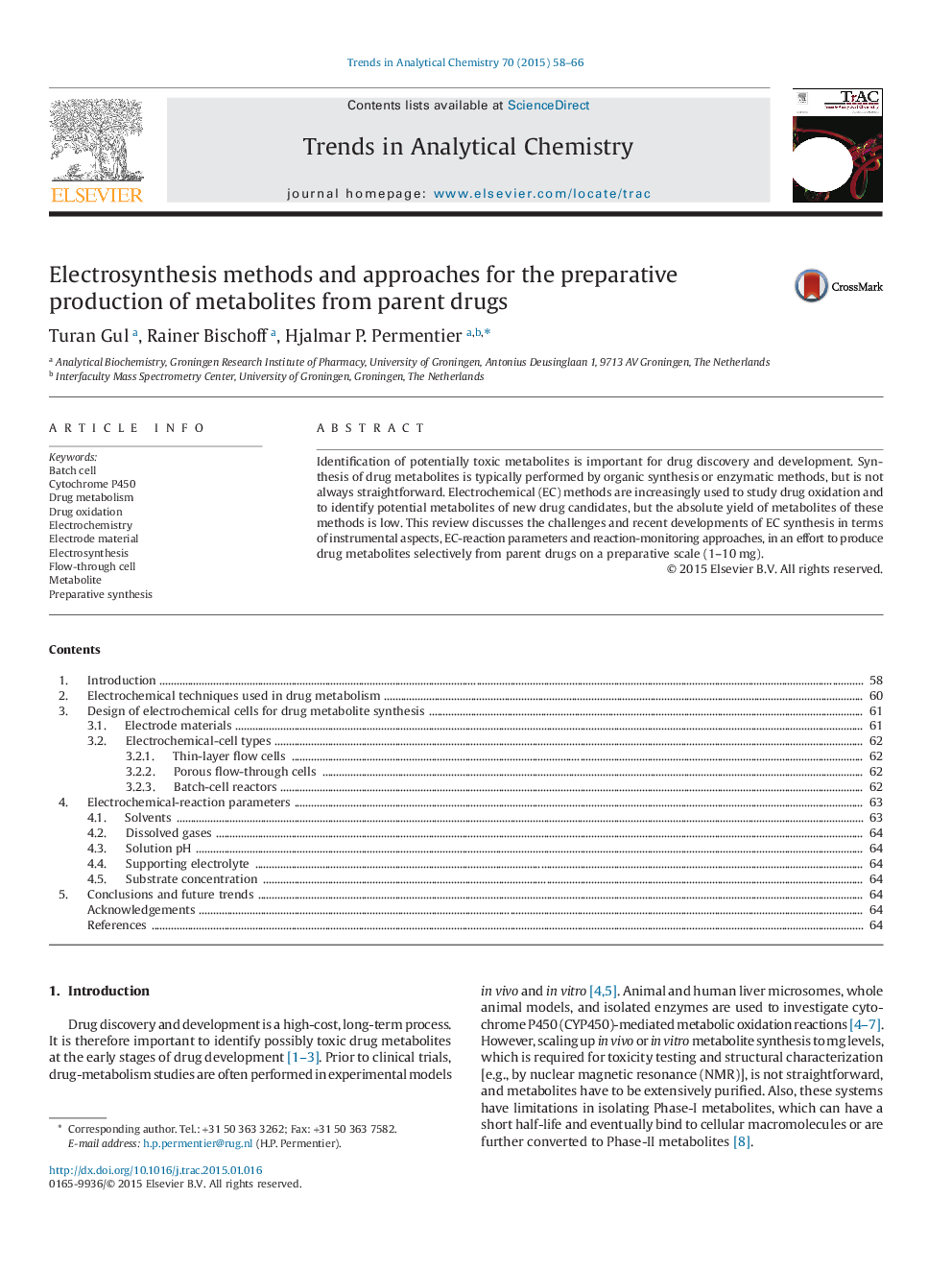| Article ID | Journal | Published Year | Pages | File Type |
|---|---|---|---|---|
| 1249064 | TrAC Trends in Analytical Chemistry | 2015 | 9 Pages |
•Analytical electrochemical techniques can study drug metabolites on a small scale.•Challenges to the upscaling of electrochemical synthesis.•Large surface-area electrodes with low adsorption and high stability needed.•With optimization, electrosynthesis can generate drug metabolites at the mg scale.
Identification of potentially toxic metabolites is important for drug discovery and development. Synthesis of drug metabolites is typically performed by organic synthesis or enzymatic methods, but is not always straightforward. Electrochemical (EC) methods are increasingly used to study drug oxidation and to identify potential metabolites of new drug candidates, but the absolute yield of metabolites of these methods is low. This review discusses the challenges and recent developments of EC synthesis in terms of instrumental aspects, EC-reaction parameters and reaction-monitoring approaches, in an effort to produce drug metabolites selectively from parent drugs on a preparative scale (1–10 mg).
